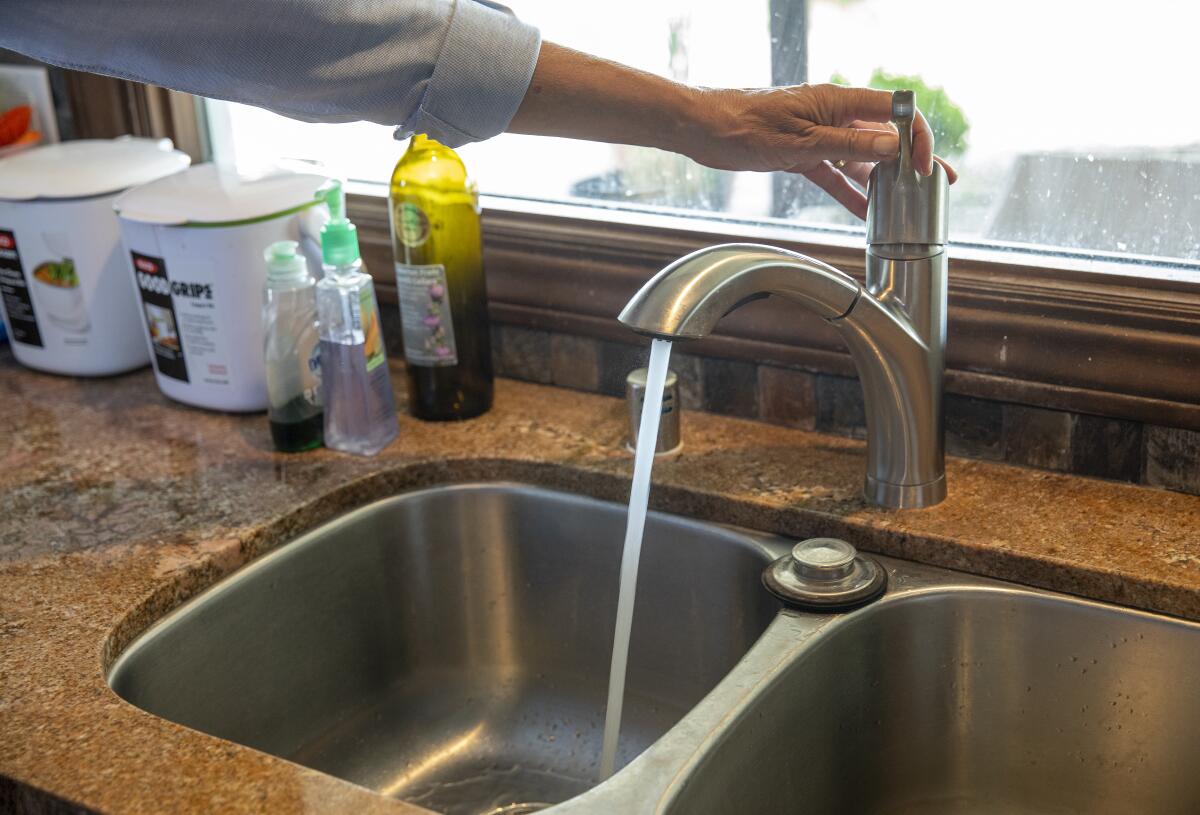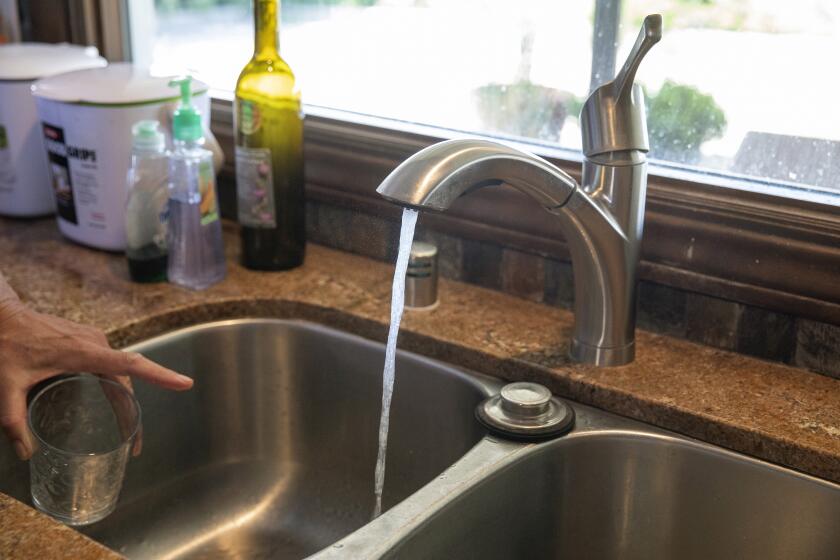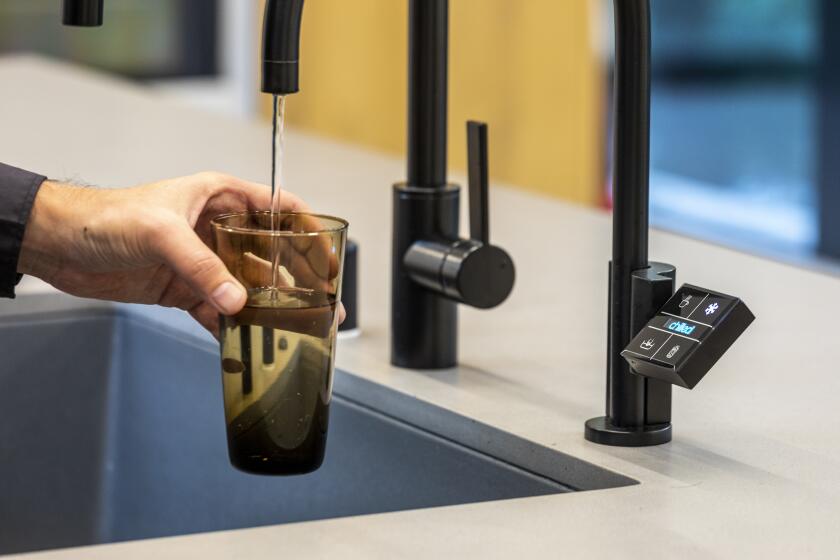Californians with past-due water bills can get help with payments. Here’s how

- Share via
Low-income Los Angeles County residents who are behind on their utility payments have a chance at keeping the water on, with a federally funded program that has been extended through March.
The Low Income Household Water Assistance Program, administered by the California Department of Community Services and Development, was established by Congress in December 2020 as a one-time support to help low-income Californians pay past-due or current bills for water, sewer or both services.
Through the program, eligible applicants can receive up to $15,000 in assistance.
The program kicked off in 2021 with an estimated $5 million funding, said Frank Talamantes, home energy assistance program supervisor for the Pacific Asian Consortium in Employment.
For the last two years, Talamantes said only $2 million has been used to assist Californians.
A judge has thrown out the surcharge on LADWP water bills that was used to subsidize low-income customers.
The program was set to end this fall, but it will now remain available through March or until the funding runs out.
“When you want to dip into your savings [to pay your bill], why not apply for the program to help you with your water,” he said.
Here’s what residents need to know about eligibility requirements and how to apply.
The Water Rate Assistance Program, which Gov. Gavin Newsom vetoed last month, would have created a water affordability program for low-income households.
Who is eligible for assistance?
The program is available to both low-income renters and homeowners — even though most renters are not responsible for their water and sewer bills.
Homeowners are eligible for the program if their total household gross income is at or below 60% of the state median income.
For example, if a resident lives in a three-person household with a monthly income of slightly more than $4,300, the applicant is eligible. The California Department of Community Services and Development’s online website has a household income eligibility guide that residents can reference.
An applicant is also eligible if a household member is a current recipient of CalFresh, CalWORKs, or the Low Income Home Energy Assistance Program.
Renters who are in charge of paying for their water and sewer bills can qualify for the program if they are past due on their rent. To get the benefit, the renter would need to complete an agreement with their landlord as part of the application.
A recent report found that Black, Latino and low-income households in L.A. bear the brunt of utility shutoffs. Here’s what to do if you lose water, electricity or gas service.
How to apply
Interested applicants can check online to determine whether their water and sewer provider is enrolled in the Low Income Household Water Assistance Program. Providers such as the Los Angeles Department of Water and Power and the Los Angeles County Public Waterworks Districts are enrolled.
According to the state Community Services and Development website, some utility providers cannot accept program assistance payments on current bills. Residents should check with the enrolled service provider on what the program can assist with.
For help on the application or to get more information, community organizations — including the Pacific Asian Consortium in Employment, Maravilla Foundation and Long Beach Community Action Partnership — can assist residents.
To apply you’ll need:
- Current water and/or wastewater bill.
- Proof of income for all household members. (That includes proof of participation in CalFresh or CalWORKs.)
- California I.D.
Talamantes said that if a homeowner or renter is in the country illegally, he or she can still be eligible for the program as long as one household member is at least 18 and a U.S. citizen; that person can apply for assistance.
More to Read
Sign up for Essential California
The most important California stories and recommendations in your inbox every morning.
You may occasionally receive promotional content from the Los Angeles Times.

















